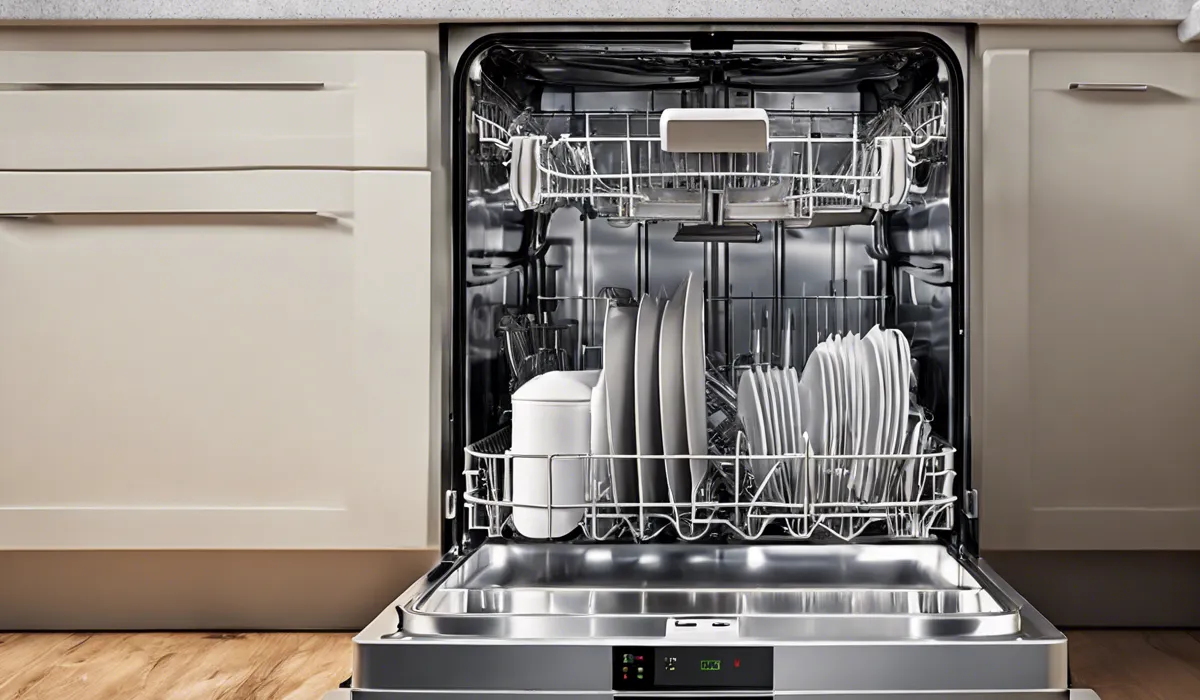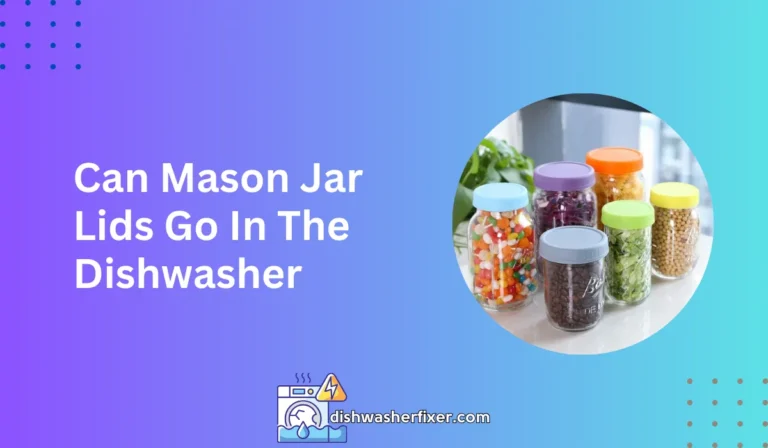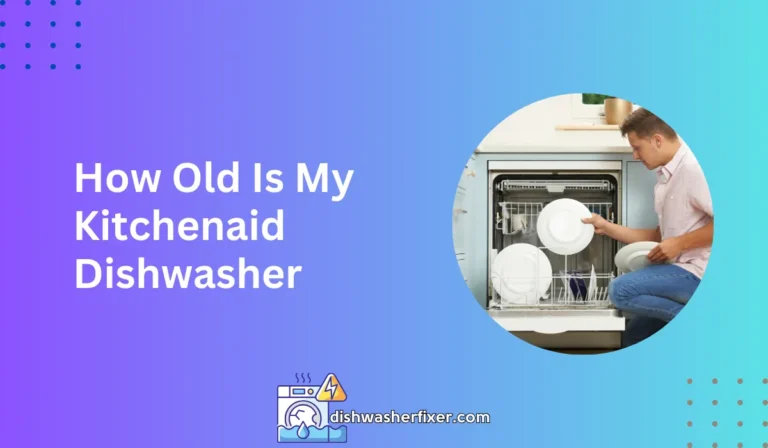Can You Run a Dishwasher Empty? Find Out the Benefits!
Yes, you can run a dishwasher empty. This is a common method for cleaning and maintaining your dishwasher’s interior. Running it empty with a cup of vinegar can help remove buildup and odors. However, it’s not necessary to do this frequently—once a month is sufficient.
Reasons for Running a Dishwasher Empty

Cleaning the Appliance Itself
Running your dishwasher without any dishes is akin to giving it a spa day. Over time, bits of food, grease, and soap scum can cling to the walls and components, potentially hampering its performance.
By running it empty, you ensure that these elements are flushed out, keeping the interior sparkling and functioning at its best. This routine maintenance can extend the life of your dishwasher, saving you money and hassle in the long run.
Removing Odors and Residue
Unpleasant smells in your dishwasher can transfer to your clean dishes, which is something no one wants. These odors often come from trapped food particles that start to decay or from mold and mildew growth.
An empty run, particularly with a cleaning agent like vinegar, can neutralize these odors and dissolve the residue that causes them, leaving your dishwasher smelling fresh.
Maintaining Dishwasher Efficiency
Like any appliance, a dishwasher needs a certain level of upkeep to continue running efficiently. Lime scale and soap buildup can obstruct water jets and sensors, leading to less effective wash cycles.
Regularly cleaning your dishwasher empty helps prevent these problems, ensuring that your dishes come out clean the first time, which conserves water and energy.
Preparing for Long Periods of Non-Use
If you plan to be away from home for an extended period, running your dishwasher empty is an excellent way to prep it for inactivity.
This prevents residual water from sitting in the bottom, which can lead to unpleasant smells or even damage if it evaporates completely, leaving behind residue.
How to Run a Dishwasher Empty

Choosing the Right Cycle and Settings
When running your dishwasher empty, the normal cycle should suffice. However, some dishwashers have a specific ‘clean washer’ setting designed for this purpose.
Make sure to avoid settings such as ‘eco-mode,’ which may use less water and heat, as you want a thorough clean.
Selecting a Cleaning Agent or Descaler
Vinegar is a natural descaler and can be effective at removing buildup. If you have hard water, you might consider a commercial descaler or dishwasher cleaner to address lime scale.
Remember to read and follow the instructions on any commercial product you use.
Step-by-Step Process of Starting an Empty Cycle
To begin, ensure the dishwasher is empty of all dishes and utensils. Place a cup of vinegar on the top rack or sprinkle baking soda across the bottom. Then, select the appropriate cycle and start the dishwasher. Once the cycle is complete, leave the door open for a bit to air dry the interior.
Tips and Considerations

Frequency of Running an Empty Cycle
It’s generally recommended to clean your dishwasher in this way once a month. This frequency keeps your machine fresh without being overzealous. However, if you notice persistent odors or residue, you may need to do it more often until the issue resolves.
Safety and Maintenance Tips
Always use products that are safe for your dishwasher. If you’re unsure, consult your owner’s manual or the manufacturer’s website.
Additionally, check the spinning arms and utensil holder for trapped debris and remove any food particles from the filter regularly.
Environmental and Cost Implications
Running an empty cycle does use water and energy, so it’s crucial to do it only as needed. By maintaining efficiency and extending the life of your dishwasher, you’re also making an environmentally friendly choice.
The cost of a single cycle is relatively low, but remember, over time, savings from efficient appliance use can add up.
Alternatives to Using Commercial Cleaners
Vinegar and baking soda are excellent natural alternatives to commercial cleaners. They’re less harsh on the environment and are often already available in your home, cutting down on cost and waste.
Plus, they’re non-toxic, making them safe options for homes with pets or children.
FAQs About Running a Dishwasher Empty
Is it okay to run my dishwasher when it’s empty?
Yes, it is perfectly fine to run your dishwasher empty as part of routine cleaning and maintenance.
How often should I run an empty cycle in my dishwasher?
Running an empty cycle for cleaning purposes should be done about once a month to maintain the dishwasher’s performance.
Can vinegar be used when running an empty dishwasher cycle?
Yes, placing a cup of vinegar inside an empty dishwasher can help in removing buildup and bad odors.
Will running an empty cycle harm my dishwasher in any way?
No, running an empty cycle will not harm your dishwasher; it is a recommended practice to keep it clean.
What can I use besides vinegar to clean my dishwasher in an empty cycle?
You can also use a dishwasher cleaning agent or baking soda for an empty cleaning cycle.
Final Thoughts
Running a dishwasher empty is a practical approach to cleaning and maintaining the appliance. Using a cup of vinegar during an empty cycle can effectively remove buildup and unpleasant smells.
While beneficial, such maintenance doesn’t have to be frequent; a monthly routine is ample to keep your dishwasher in good condition.
Useful Resources
- https://blogs.extension.iastate.edu/answerline/2016/03/21/cleaning-your-dishwasher/
- https://www.dutchessny.gov/Departments/Water-Wastewater/Docs/2021_After_Boil_Water_Notice_Instructions.pdf
- https://www.hendersonvillenc.gov/sites/default/files/uploads/departments/water/after-a-boil-water-advisory-faq-190919.pdf




